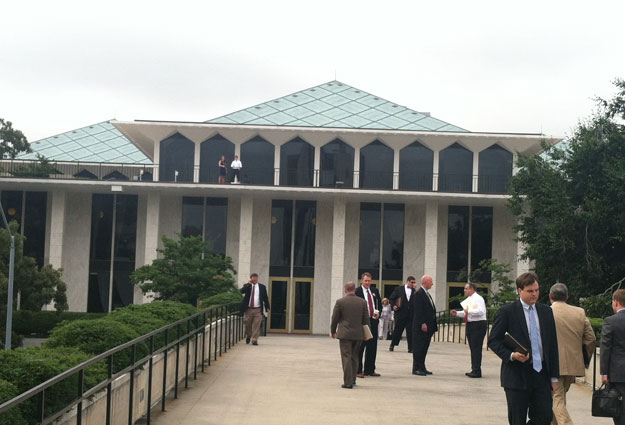A bill making it more difficult to remove or relocate state monuments, including Confederate monuments, passed the legislature Tuesday.
The shooting of nine African Americans at Emanuel AME in Charleston prompted the removal of Confederate flags and monuments from public spaces throughout the south.
But several weeks before the Charleston shooting, the North Carolina Senate passed Senate Bill 22. The legislation requires approval from the North Carolina Historical Commission for any state memorial or monument to be altered, removed or relocated.
House Representative Paul Tine voted in support of the bill when it passed the House Tuesday.
“In April when this bill passed the Senate with a unanimous vote, it was looked upon as a way to ensure that we continue to honor our military and veterans through a consistent process that gives due consideration to honor those that deserve our respect and remembrance,” Tine said during debate on the House floor. “To me, this is exactly why we should pass this bill. When we are upset we have a tendency to make broad-based knee-jerk reactions that sometimes throw the good out with the bad.”
Many legislators voiced fierce opposition to Senate Bill 22, including Orange County’s representative Graig Meyer.
“If your intention is to uphold collective memory of sacrifice, you have to recognize that part of the impact is reminding people who are descendants of slaves that they are still struggling for true freedom today,” Meyer said. “If your intention is to uphold a monument that is a symbol of values, […] then you have to recognize that those monuments are currently being used as rallying points for people whose values are the most abhorrent forms of racism that we see in society today.”
House Representative Rodney Moore, a Democrat from Mecklenburg County, says Confederate monuments represent a dark history to African Americans throughout the state.
“When we see Confederate monuments, Confederate flags, we see oppression,” Rodney told his fellow representatives. “We see the history of marginalization of an entire race of people […] we see, in our minds, symbols of hatred.”
The bill passed 70-39, largely along party lines. The governor’s office did not respond to an inquiry from WCHL as to whether the governor intends to sign the bill into law.






Comments on Chapelboro are moderated according to our Community Guidelines